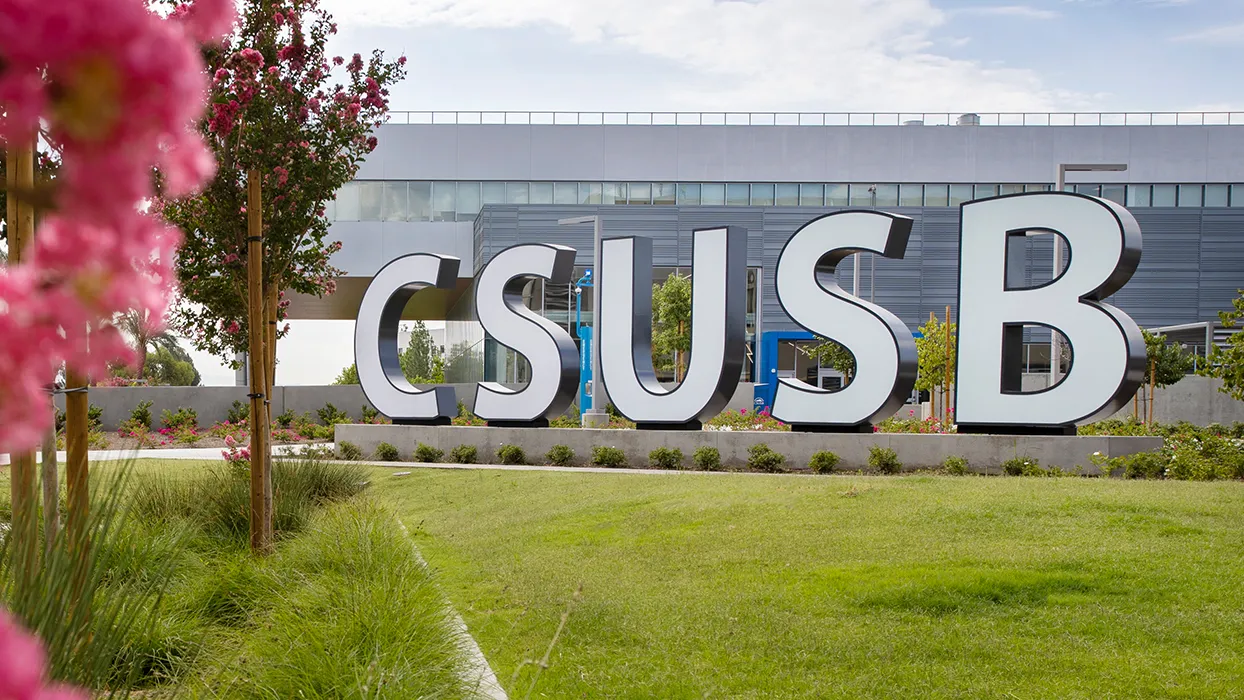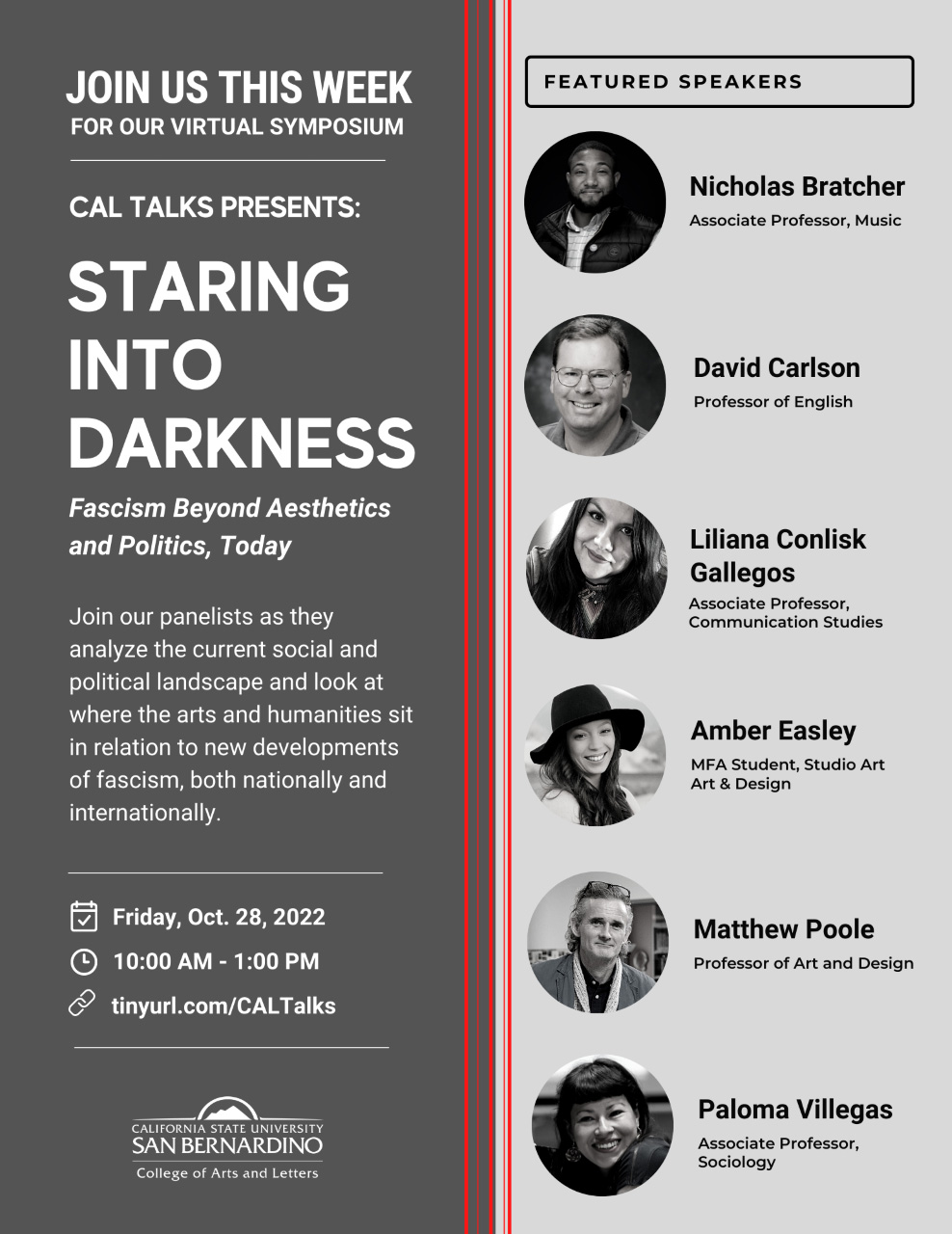Joe Gutierrez | Office of Strategic Communication | (909) 537-3007 | joeg@csusb.edu

The College of Arts and Letters at Cal State San Bernardino will discuss fascism, the “aestheticization of politics,” and where the arts and humanities sit in relation to new developments of political ideologies during its eighth annual CAL Talks Symposium this fall semester.
The event, “Staring Into the Darkness: Fascism Beyond Aesthetics and Politics, Today,” will take place virtually on Friday, Oct. 28, from 10 a.m. to 1 p.m. It will include presentations and a roundtable discussion that focuses on what fascism is, how it works and what the ramifications of it are as a political system and ideology.
The symposium will also analyze current instances of what late Marxist philosopher Walter Benjamin described as the “aestheticization of politics,” which refers to the processes that make governmental acts of violence appear reasonable, necessary or even ideal for the success of a nation.
Furthermore, presenters will explore whether fascism can be accurately identified today, or whether political ideologies have become impossible to define and distinguish in general.
The event is organized by Liliana Conlisk Gallegos, associate professor of communication studies, and Matthew Poole, professor of art and design. It will feature presentations by Nicholas Bratcher, associate professor of music; David Carlson, professor of English; Amber Easley, MFA studio art student; and Paloma Villegas, assistant professor of sociology. Event organizers Conlisk Gallegos and Poole will also give presentations.
Opening remarks will be provided by Rueyling Chuang, dean of the College of Arts and Letters. There will be discussion and opportunities for audience members to ask questions after each round of panelist presentations.
Over the past few years, fascism has crept into public discourse again. The term is now explicitly referred too frequently by elected officials, the news media and by other commentators of politics and culture. Examples of fascist behavior can be seen throughout the nation, as well as internationally, with increasing instances of hate speech, racism, xenophobia and homophobia going viral with little to no condemnation of these violent acts.
By asking what fascism is today, the symposium will analyze how the social and political landscape is now constituted in ways that are new and surprising, and even dangerous, and will look at where the arts and humanities sit in relation to these developments.
To attend the symposium, please use the following Zoom link: https://tinyurl.com/CALTalks
